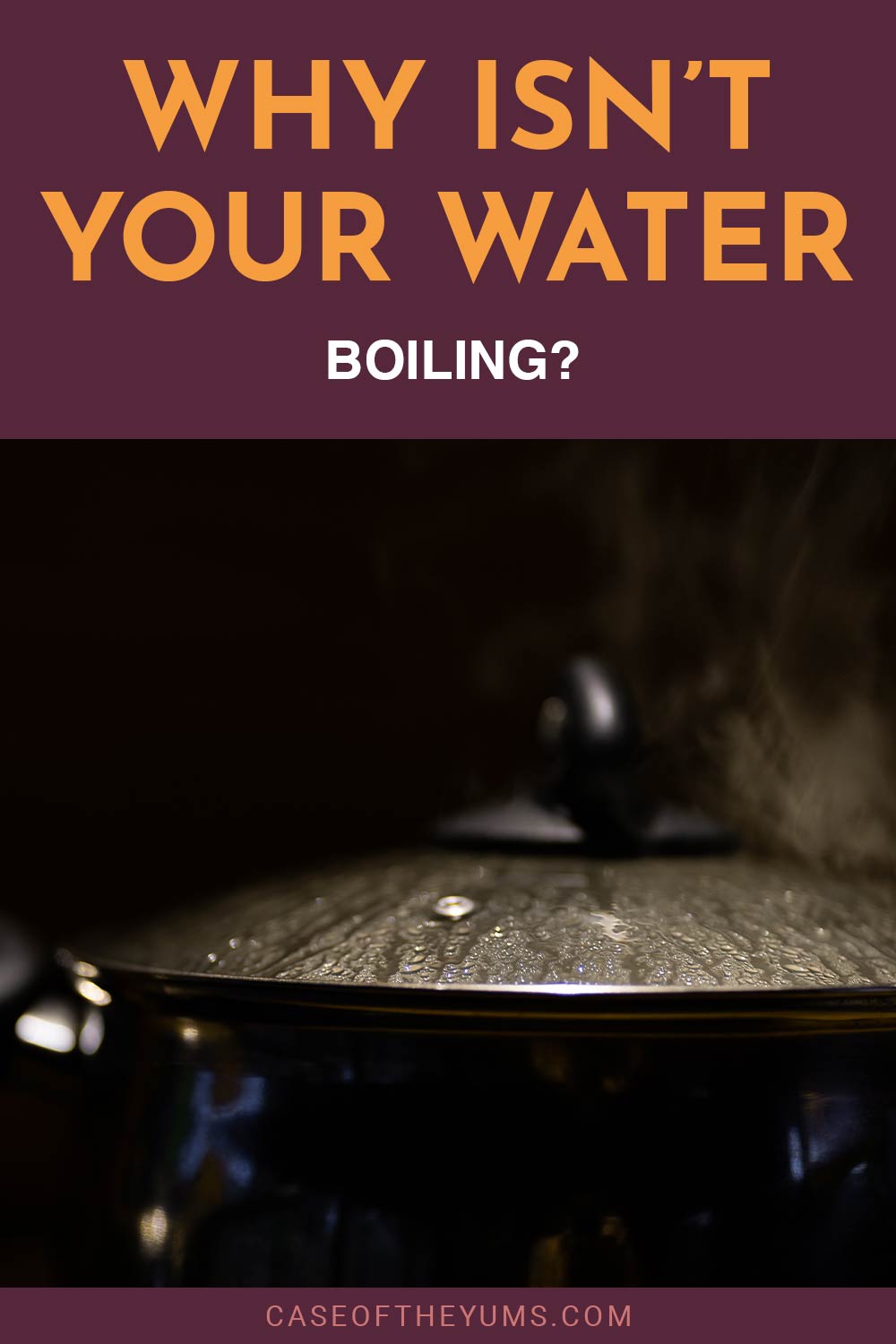Why isn’t Your Water Boiling?
We may earn commissions for purchases made through links on our site. Learn more on our about us page.
Water is an element that takes more energy to change the liquid’s temperature a single degree in either direction than it would most substances, liquid, gas, or solid.
So when you have your kettle over a fire, pot over the oven, or however you plan to heat your water, be sure to be patient with low temperatures and consider adding salt to help speed up the boiling process.
Otherwise, the fuel source will be one of the first checks to conduct for an open flame. If the fire is not hot enough to boil water, you will have to add more fuel; or when concerning a camping site, stones around the campfire built upright will help conduct the heat better.

Why Does Water Sometimes not Boil?
If you find yourself trying to cook something or just simply boil up some water, and the temperature does not seem to get high enough to boil, the heating source is not hot enough, or you have not allowed enough time for the water to heat up.
Consider this when you are boiling water on the stove, you will have a regulated temperature and still conditions, which makes it rather easy to direct heat to the pot.
When out on a camping trip, the conditions needed to create the same effect will require a stone fire pit ring, plenty of burning fuels (wood or camping stove), and time for the water to heat.
What are the Potential Issues?
As mentioned above in the earlier passages, the conditions needed to boil water include a constant heat source, a sheltering structure to protect that heat source from any weather elements, and plenty of fuel.
That being said, fuel can be a problem for campers when the forests around you are picked clean; do not chop down a living tree. The wet wood will not burn well, you are better off with branches and dry sticks.
Another issue will be to protect the flame, or heat source, from the wind; at home, this may not be an issue. However, out in the wilderness areas, you will be best suited to using stones and rocks to build up a protective ring for the campfire or portable camping stovetop.
How Long Should it Take for Water to Boil?
There will be a few factors to consider that might affect the time it takes to bring water to a boil. First, what is the starting temperature for the liquid, and how hot is the heat source?
Cold waters will take some extra time to warm up, especially from natural mountain weekends, unless you have an exceptionally hot campfire set up.
Otherwise, those with a stovetop and traditional pot setup will have an easier time because it should only take around five to ten minutes to bring tap water to a boiling two hundred and twelve degrees Fahrenheit.
Does Shaking Water Make it Boil Faster?
No, there are going to be certain chemical reactions that will become heated when you shake the solution around.
However, as a liquid, water will maintain its temperature better when moving; for example, the running waters from the mountain glaciers will remain cool even upon reaching the lower flat lands.
The classic techniques to speed up the process of boiling water will include:
- Adding salt (or sodium) – helps encourage chemical reactions in heated water.
- Using less water to start with
- Cover the pot you are using. Helps trap steam and keep the heated water inside the container.
- Spreading the water out, with more surface area, allows for large volumes of liquid to be heated at the same time.
How Do You Make Water Boil Faster?
As mentioned in the list provided in the passage above, most of the traditional methods of speeding up boiling water include additives and simple science.
However, here in the modern kitchen and campsite, cookware reality is going to be innovative gadgets to heat water faster, including the modern electric kettles that only take a few minutes to boil water.
Using these types of technology will be the quickest way to get that water to the two hundred and twelve degrees needed to be considered boiling.
If you are out in the wilderness and need additional heat without building a bigger fire, use heat stones to conduct the heat and provide a boost to the heating process.
Final Thoughts on Why isn’t Your Water Boiling
When it comes to the basic process of boiling water, there are not many methods to speak of to accomplish this task.
The differences come in the form of fuels, tools, and human ability, which marks how individuals prioritize their skill sets for the hobbies and activities they consider important enough to learn about.



Leave a Reply
You must be logged in to post a comment.